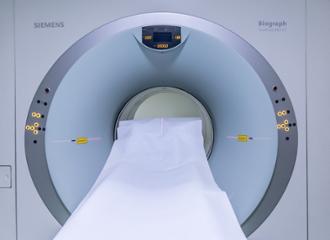- ES
- EN
Events
Start of main content

Puzzles of the New Cosmology: Expansion and smoothness of the Universe
Life and Matter Sciences Conference Tuesday, 5 April 2022, 19:00 hours Madrid
General information:
Venue: Fundación Ramón Areces - salón de actos. Calle Vitruvio, 5. 28006. Madrid.
Free admission. Necessary previous online registration. Limited capacity.
In cooperation with:
Real Academia de Ciencias and CIEMAT (Centro de Investigaciones Energéticas, Medioambientales y Tecnológicas)
Multimedia
Puzzles of the New Cosmology: Expansion and smoothness of the Universe
Audio
- Description
- Programme
- Speaker/s
The beginnings of the XXI century brought the development of the standard model of cosmology. The Universe is made of a 70% of dark energy, a 25% of dark matters and a 5% of ordinary matter. Even with a dark sector that still needs to be studied, this theory has had a brilliant success in the explanation of the cosmos. However, some new results obtained in the last few years could imply a new paradigm change. Some incompatible measurements of the expansion rate of the Universe and its smoothness place the standard model in tension. In this talk I will present a review of the new cosmology and the dark sector of the Universe, and of the tensions it faces and their possible consequences in our understanding of the cosmos.
Tuesday, 5 April
18:30 h.
Attendees check-in
19:00 h.
Puzzles of the New Cosmology: Expansion and smoothness of the Universe
Eusebio Sánchez
Departamento de Investigación Básica. CIEMAT.
Eusebio Sánchez
Eusebio Sánchez has a PhD in physics and leads the cosmology group at CIEMAT. His current research area is the origin and evolution of the Universe. He holds responsibility positions in the most important international projects about cosmology. He is an author of more than 450 papers in scientific international journals and has worked in several laboratories of physics around the world, like CERN or Fermilab. His research covers a wide spectrum of scientific topics, from particle physics to the physical nature of dark matter and dark energy.
-
 Activities related
Activities related
-
 Projects related
Projects related
-
 News related
News related
-
 Publications related
Publications related
-
8
May
2023
Conference La insoportable levedad de los neutrinos Madrid, Monday, 8 May 2023, 19:00 hours
-
21
Sep
2023
Conference Fotones: Herramienta de Frontera para el Avance Científico, Tecnológico, Médico e Industrial Madrid, Thursday, 21 September 2023, 19:00 hours
-
20
Jun
2024
Conference Pulsos de luz de attosegundos para el estudio de la dinámica de electrones Madrid, Jueves, 20 de junio de 2024, 19:00 horas
- Development and Application of saRNAs for the Treatment of Rare Monogenic Diseases 2024 Senior Researcher : María Luisa Cayuela Fuentes
- CHANNELOSOME RESCUING PEPTIDES IN THE TREATMENT OF ARRHYTHMIAS IN INHERITABLE HEART DISEASES 2024 Senior Researcher : José Jalife Research Centre or Institution : Centro Nacional de Investigaciones Cardiovasculares (CNIC). Madrid
- Mechanisms for sustaining mitochondrial genome integrity and function during hematopoiesis. 2024 Senior Researcher : Ana Victoria Lechuga Vieco Research Centre or Institution : Fundació Clínic per a la Recerca Biomèdica. Hospital Clínic. Barcelona



End of main content


